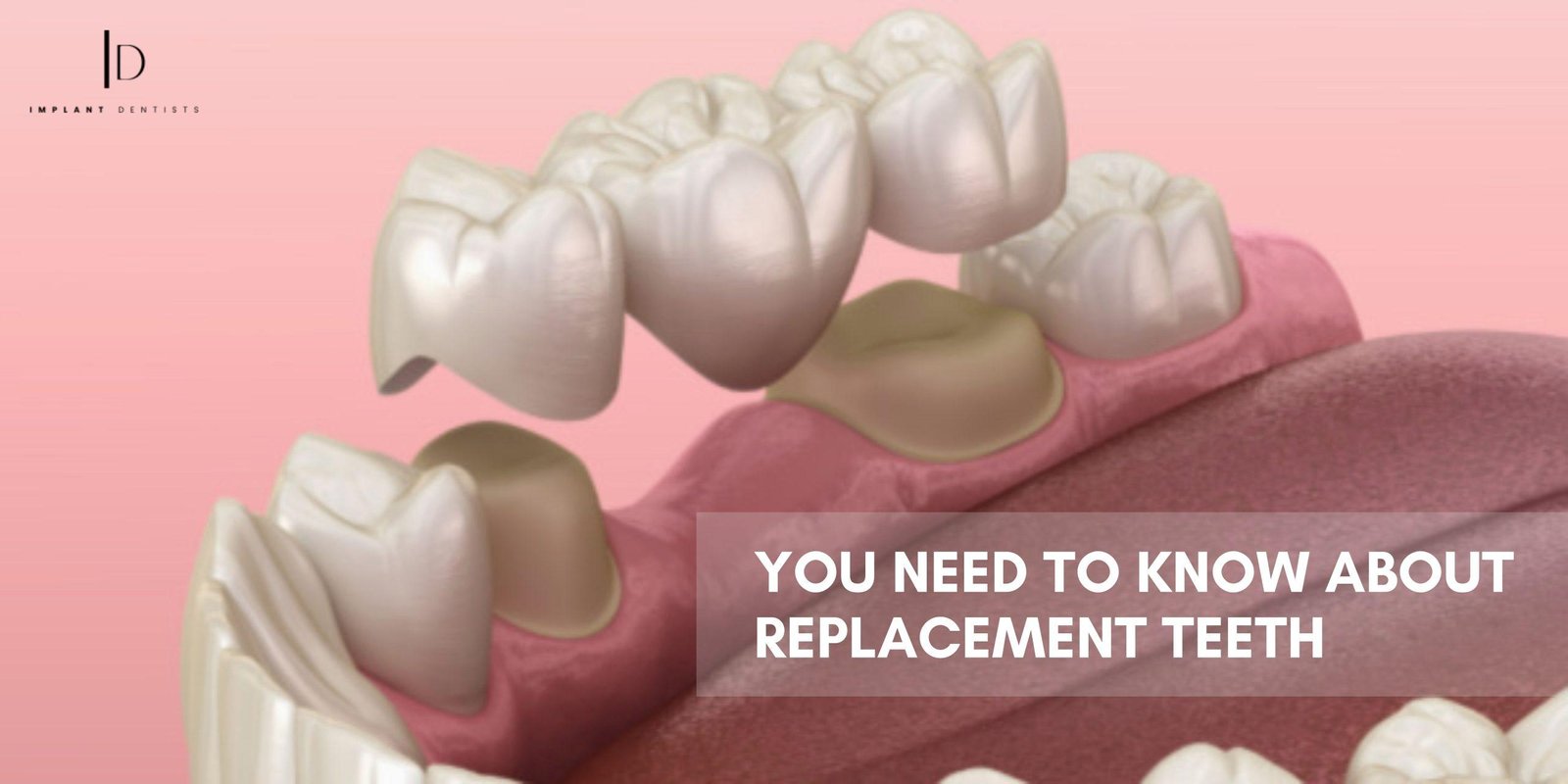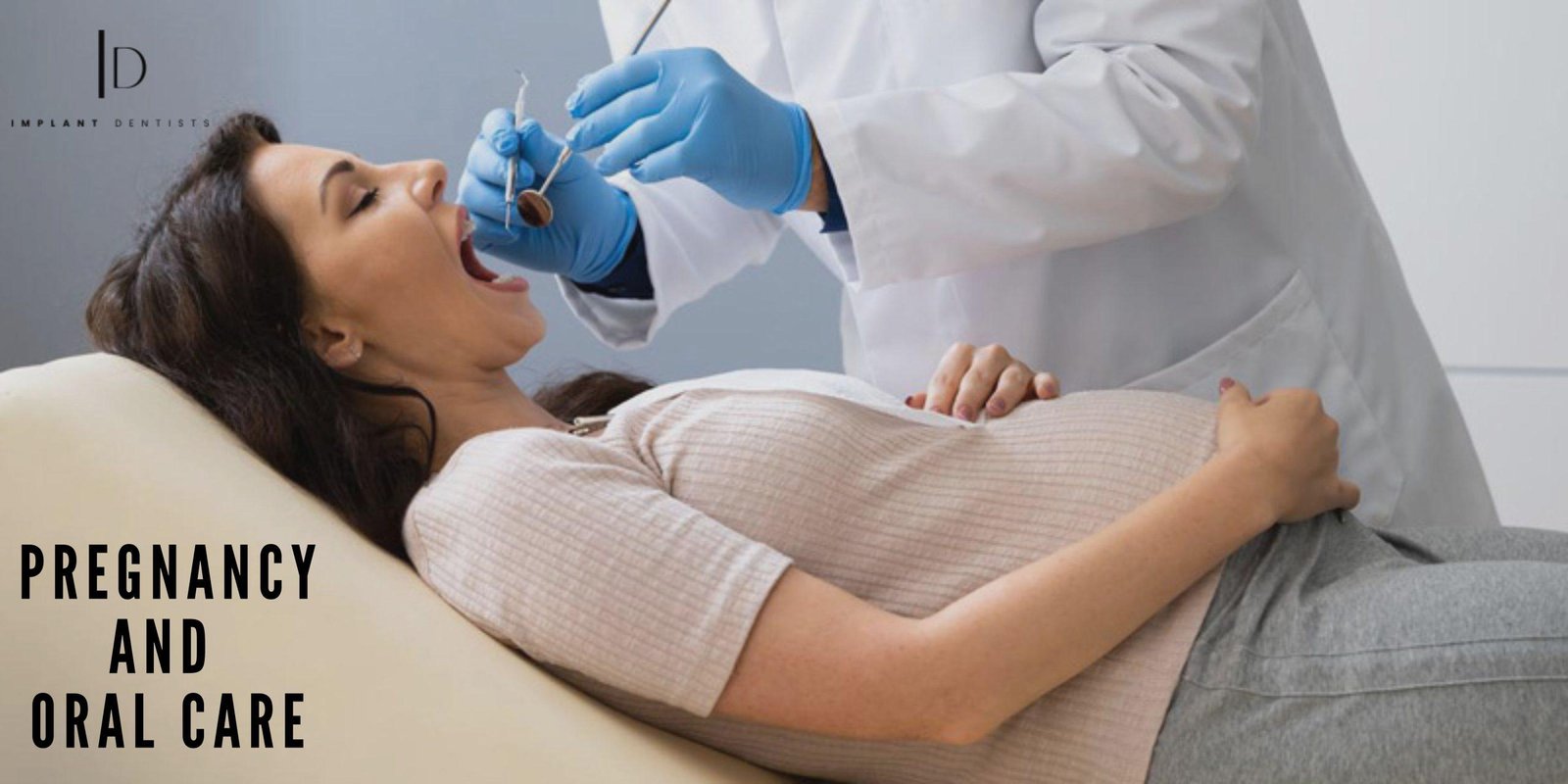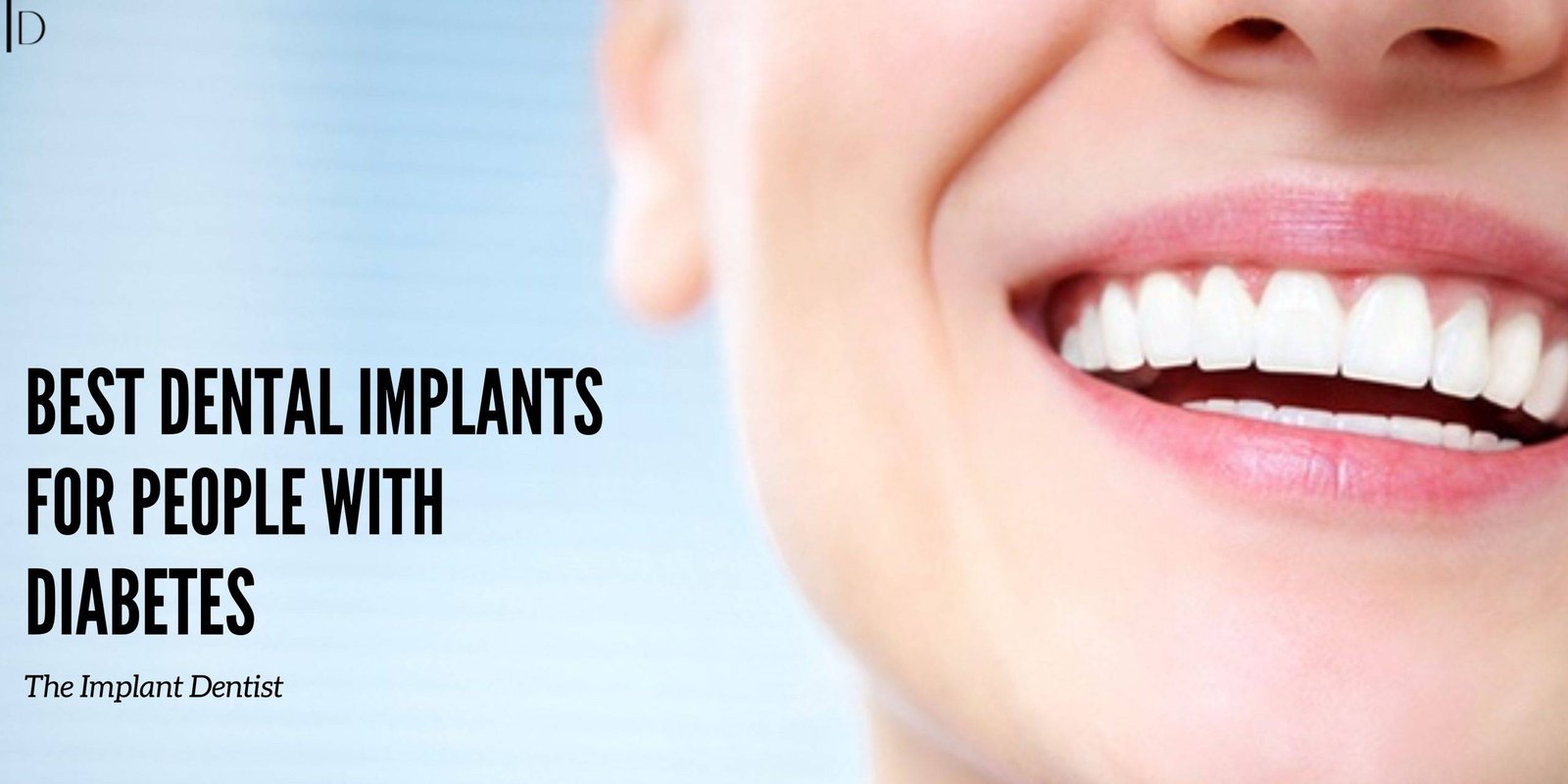Tag: centre for implant dentistry

Smoking and Dental Implants: Can You Have Both?
May 3, 2024
Restoring Your Smile | Everything You Need to Know About Replacement Teeth
February 21, 2024Losing a tooth can be a big deal. It affects not only your appearance but also your ability to eat, speak, and even your self-confidence. Thankfully, modern dentistry offers a variety of options to replace missing teeth and restore your smile to its former glory. Now, we’ll explore the different types of replacement teeth, their pros, and factors to consider when making your decision.
Filling the Gap: Common Types of Replacement Teeth
-
Dental Implants: Considered the gold standard, implants mimic natural teeth the most closely. A small titanium post is surgically placed in your jawbone, acting as an anchor for a crown. Implants are durable, aesthetically pleasing, and function like natural teeth. However, they’re also the most expensive option and require surgery.
-
Dental Bridges: Bridges are fixed restorations that “bridge” the gap left by missing teeth. They consist of artificial teeth attached to crowns cemented onto adjacent healthy teeth. Bridges are strong and natural-looking, but they require preparation of healthy teeth, which may not be ideal for everyone.
-
Dentures: These are removable prosthetics that replace multiple missing teeth. Full dentures cover all teeth in an arch, while partial dentures only fill in specific gaps. Dentures are generally more affordable than implants or bridges, but they may not fit perfectly and can impact speech and eating.
-
Partial Dentures with Implants: Combining implants with dentures offers the best of both worlds. Implants provide stability and prevent bone loss, while the denture fills in the gaps. This option is more expensive than regular dentures but offers superior comfort and function.
Choosing the Right Option: Factors to Consider
- Number of missing teeth: Implants are best for single teeth or multiple spaced apart. Bridges work well for a few consecutive missing teeth. Dentures are suitable for replacing all or most teeth.
- Jawbone health: Implants require sufficient bone mass for placement. Dentures might require bone grafting if bone loss is significant.
- Budget: Implants are the most expensive, followed by bridges, then dentures. Partial dentures with implants are more costly than regular dentures.
- Lifestyle and preferences: Consider your comfort level with removable options, the importance of aesthetics, and your maintenance needs.
5 Pros of Replacing Missing Teeth: Reclaim Your Smile and More!
Losing a tooth isn’t just an aesthetic concern; it impacts your physical and social well-being. Thankfully, modern dentistry offers various solutions to fill the gap and restore your smile’s glory. Beyond regaining that confident grin, here are 5 compelling benefits of replacing missing teeth:
- Eat Like a Champ: Imagine relishing a juicy steak or crunchy apple without struggling. Replacement teeth, especially implants and bridges, mimic natural teeth, allowing you to chew efficiently and enjoy a wider range of delicious foods. Say goodbye to soft diets and rediscover the joy of culinary adventures!
- Speak Clearly and Confidently: Missing teeth can slur your speech, causing self-consciousness and affecting communication. Replacements like dentures or implants improve pronunciation and enunciation, letting you express yourself clearly and confidently in every conversation. Speak your mind without hesitation!
- Boost Your Confidence: A complete smile radiates self-assurance. Replacing missing teeth can drastically improve your self-esteem, empowering you to smile brightly and engage in social interactions without holding back. Let your smile reflect your inner self!
- Protect Your Oral Health: Gaps left by missing teeth create spaces for food debris and bacteria, inviting gum disease and bone loss. Replacements prevent these issues, maintaining the health of your remaining teeth and jawbone. Invest in a healthy smile for the long term!
- Maintain Facial Structure: Missing teeth can cause facial muscles to sag, leading to premature aging and a sunken appearance. Replacements fill the gap, supporting facial tissues and preserving a youthful, healthy look. Age gracefully, not visibly!
Beyond the Basics: Additional Tips
- Consult a dentist: Discussing your individual needs and preferences with a qualified dentist is crucial for choosing the best option.
- Consider long-term implications: While cost might be an initial factor, consider the lifespan and maintenance costs of each option.
- Prioritize oral health: Regular dental checkups and proper oral hygiene are essential for maintaining any type of replacement teeth.
Replacing a missing tooth is a personal decision. By understanding the different options and carefully considering your individual needs, you can restore your smile with confidence and enjoy the benefits of a complete and healthy set of teeth.
Conclusion
Losing a tooth can feel like a loss of confidence and freedom. But fret not! Modern dentistry offers a range of replacement options, each with its own strengths and considerations. This blog served as a compass, guiding you through the different types of replacement teeth, implants, bridges, dentures, and their exciting hybrid – providing an overview of their pros, cons, and suitability based on your unique needs.
Remember, the choice for a replacement tooth is personal. By considering your budget, jawbone health, lifestyle, and aesthetic preferences, you can pave the way for an informed decision alongside your trusted dentist. Don’t let a missing tooth dim your smile – with the right approach, you can reclaim your confidence and rediscover the joy of a complete and healthy set of teeth. So, step out boldly, with a smile that shines brighter than ever!

Why Prioritizing Oral Health During Pregnancy Matters?
January 30, 2024
The Best Dental Implants for People with Diabetes
October 11, 2023Living with diabetes can present various challenges, and dental health is no exception. People with diabetes need to pay extra attention to their oral health, as they are at a higher risk of dental problems, including tooth loss. Dental implants have become a popular solution for replacing missing teeth. But are they a suitable option for individuals with diabetes? In this post, we’ll explore the best dental implant options for people with diabetes, addressing the unique considerations and options available.
Understanding Diabetes and Dental Health
Before we delve into the best dental implant options, it’s essential to understand how diabetes can impact oral health. Diabetes can affect the body’s ability to fight infections and heal properly, increasing the risk of dental issues. High blood sugar levels can also lead to:
- Gum Disease: Diabetes makes individuals more susceptible to gum disease (periodontitis). This can lead to the loss of teeth and, ultimately, the need for dental implants.
- Dry Mouth: Diabetes can cause dry mouth, reducing the production of saliva that helps protect teeth. Dry mouth can lead to cavities and dental implant complications.
- Delayed Healing: Individuals with diabetes may experience slower wound healing, which is a crucial aspect of successful dental implant procedures.
- Nerve Damage: Diabetes can cause nerve damage in the mouth, reducing the ability to detect dental problems early.
The Best Dental Implants for People with Diabetes
When it comes to dental implants, several factors should be considered when choosing the best option for individuals with diabetes. Here are some options to consider:
- All-on-4 Dental Implants: All-on-4 implants are an excellent choice for many people with diabetes. This system involves placing four dental implants to support an entire arch of teeth. Since it requires fewer implants and minimizes the risk of infection, it can be an efficient and safe option for diabetic patients.
- Zirconia Implants: Zirconia dental implants are made from a biocompatible, tooth-coloured material. These implants are hypoallergenic and resistant to corrosion, which can be advantageous for individuals with diabetes, as they are more susceptible to infections and allergic reactions.
- Mini Dental Implants: Mini dental implants are a smaller version of traditional implants and are less invasive. They can be a suitable choice for individuals with diabetes who may have a slower healing process, as they require less downtime and have a lower risk of complications.
- Guided to Implant Surgery: Precision is crucial in dental implant surgery for diabetic patients. Guided to implant surgery, which utilizes advanced technology to plan and execute the procedure with the utmost accuracy, can reduce the risk of complications and improve the chances of successful implant integration.
- Good Oral Hygiene Practices: Regardless of the type of dental implant chosen, maintaining excellent oral hygiene is essential for people with diabetes. Regular dental check-ups, daily brushing and flossing, and managing blood sugar levels are crucial for the long-term success of dental implants.
Conclusion
Dental implants are a viable solution for people with diabetes who have lost teeth or are at risk of tooth loss. However, the choice of implant type and the surgical approach should be carefully considered minimizing risks and ensure long-term success. It’s essential for individuals with diabetes to work closely with their dentist or oral surgeon to create a personalized treatment plan that takes their unique medical condition into account. With the right approach and proper care, the best dental implants can provide a durable and natural-looking solution to restore a beautiful smile and overall oral health for people with diabetes.

What to Look for in a Centre for Implant Dentistry: A Guide for UK Residents
August 28, 2023Are you considering getting dental implants in the UK? The journey to a confident smile and improved oral health begins with choosing the right centre for implant dentistry. With the myriad of options available, it’s important to know what to look for to ensure you receive the highest quality care. In this guide, we’ll walk you through the key factors to consider when selecting a centre for implant dentistry in the UK.
Expertise and Qualifications of the Dental Professionals
The first and foremost aspect to consider is the expertise of the dental professionals at the centre. Dental implant procedures require specialized training and experience. Look for a centre that boasts a team of qualified implant dentists and oral surgeons. Check their credentials, education, and any affiliations with professional bodies such as the British Society of Oral Implantology (BSOI) or the Association of Dental Implantology (ADI). These affiliations can indicate their commitment to staying updated with the latest advancements in implant dentistry.
Comprehensive Services
When choosing a centre for implant dentistry, it’s beneficial to select one that offers a wide range of services beyond just implant placement. Pre-implant assessments, digital scanning, 3D imaging, bone grafting, and post-implant care are all crucial components of a successful implant journey. A centre that provides comprehensive services under one roof can streamline the process, ensuring continuity of care and convenience for you.
Advanced Technology and Techniques
Implant dentistry has come a long way, thanks to advancements in technology and techniques. Look for a centre that embraces modern technologies such as digital impressions, computer-guided implant placement, and minimally invasive procedures. These technologies not only enhance the precision of the treatment but also contribute to a more comfortable experience and faster recovery.
Patient-Centred Approach
A patient-centred approach is key to a positive dental implant experience. Seek a centre where the staff listens to your concerns, answers your questions, and involves you in the treatment planning process. Transparent communication and personalized treatment plans ensure that your unique needs and preferences are taken into account every step of the way.
Positive Reviews and Testimonials
Online reviews and testimonials from previous patients can provide valuable insights into the quality of care a centre for implant dentistry offers. Look for consistent positive feedback regarding the professionalism of the staff, the success of the procedures, and the overall patient experience. Keep in mind that a few negative reviews are normal, but the overall trend should be positive.
Clean and Modern Facilities
The environment in which your dental implant procedure takes place matters. A clean and modern facility not only ensures your safety but also contributes to your comfort. When visiting potential centres, take note of the cleanliness of the clinic, the state of the equipment, and the overall ambiance.
Clear Pricing and Financing Options
Dental implant procedures can be an investment in your oral health and confidence. It’s important to choose a centre that offers transparent pricing, breaks down the costs involved, and discusses potential financing options. This clarity helps you make an informed decision based on your budget.
Location and Accessibility
Consider the location of the centre for implant dentistry and its accessibility. A conveniently located centre can save you time and make it easier to attend appointments, especially if you need multiple visits during your treatment journey.
Conclusion
Choosing the right Centre for Implant Dentistry in the UK is a crucial step towards achieving a beautiful and healthy smile. Prioritize expertise, comprehensive services, advanced technology, patient-centred care, positive reviews, modern facilities, transparent pricing, and convenient location when making your decision. By taking these factors into account, you’ll be well on your way to selecting a centre that can provide you with exceptional implant dentistry services.
